The lockdown is already taking so long that you have probably watched all the Netflix shows available and now you are wondering what to do next. You don’t have to die of boredom. You can still read! And what about reading a literature of the country you last visited? 🙂
You might be familiar with a small part of Czech literature, but the country has given birth to some amazing names that can help you better understand the art and culture of the nation. No wonder it is said: “The art is every nation’s display window and the literature is the queen of all arts.” Don’t worry if your Czech is not on top,all of these books were translated into English.
The Good Soldier Švejk by Jaroslav Hašek
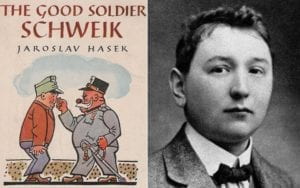
Simply the most famous Czech book, translated into more than 50 languages. It is absolute basics and if there is one book you cannot miss at any case, it is this one. Jaroslav Hašek used memories of his service during the WWI to write this satirical, anti-war masterpiece. Joseph Heller once said that without reading Švejk, he would not be able to write his Catch XXII.
The Metamorphosis by Franz Kafka
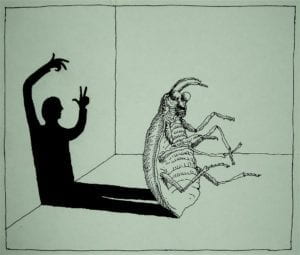
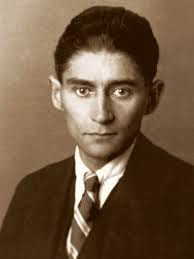
Kafka is also the perfect name to start your tour of Czech literature, as he is known everywhere and his books are unique. Kafka lived his entire life in the Jewish Quarter in Prague, where he wrote most of his books, including his most famous one, The Metamorphosis. The absurd story about the transformation of traveling salesman into the monstrous vermin is, in fact, more about the reaction of his family, about their falsity and unwillingness to help in this extreme situation.
The Power of the Powerless by Václav Havel
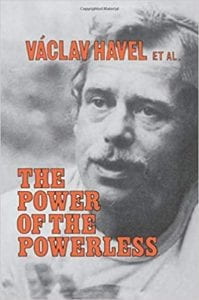
As you probably already know, Havel was the first President of the Czech Republic, but his legacy as a writer goes far beyond that. Although he wrote many plays, Havel is best known for The Power of the Powerless, a book of essays that examines how the communist regime affects the life of regular citizens and how those citizens can unite to repel oppression. The book was officially banned at the time but eventually became a representation of the ideals for the new country.
All the Beauty in the World by Jaroslav Seifert
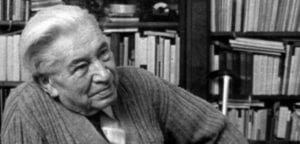
Jaroslav Seifert is still the only Czech laureate of the Nobel Prize in Literature (1984). Although the Seifert was a poet, All the Beaty in the World is in fact prose in which he poetically remembers his life. This is the true masterpiece of the memoir literature.
R.U.R. by Karel Čapek

Have you ever asked yourself: “Where does the word ‘robot’ actually come from”? Well, if you have, or even if you haven’t, this book is certainly the right one for you. It is actually a theatre play, it dates back to the 1920’s, to the era of literary dystopia. In the play, Čapek introduces android-like creatures that he calls robots, and the title, R.U.R, stands for Rossum’s Universal Robots. The word is derived from a Slavic word robota. In the Czech language, it had the meaning of corvée, hard labor…
Dancing Lessons for the Advanced in Age by Bohumil Hrabal
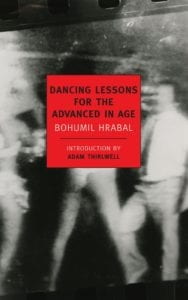

Although there are many of Hrabal´s books which deserve the position in this list (Snowdrop Festival, Cutting It Short or I Served the King of England to name just a few), whole novel Dancing Lessons for the Advanced in Age are written in just one sentence and is so unique that it was chosen to represent the work of one of the most famous Czech writers of the 20th century.
The Grandmother by Božena Němcová
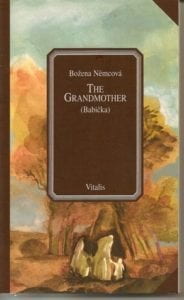
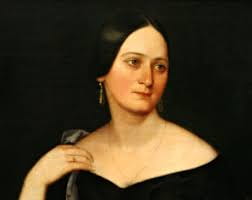
All Czech kids have to read this book in the primary school. The author tells the idealized story of her childhood in this novel. The romantic description of the life on the Czech countryside in the 19th century still defines the image of it within the Czech society. With more than 300 editions, The Grandma is simply the most read piece of the Czech literature within Czechs.
The Unbearable Lightness of Being by Milan Kundera

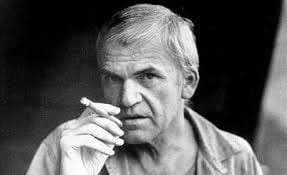
Milan Kundera became a French citizen to avoid persecution by the Communist regime in his home country but is still considered to be one of the greatest Czech authors. The novel about things so fundamental like life or love on the background of 1968 invasion of the Soviet-led forces into Czechoslovakia. Another world-famous masterpiece.
A Prayer For Katerina Horowitzowa by Arnošt Lustig
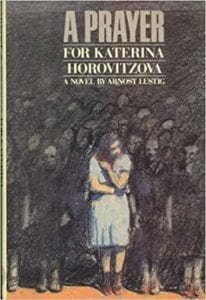
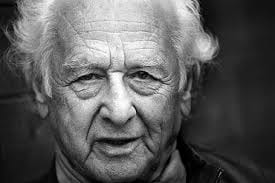
Lustig spent time in several concentration camps, including the infamous Auschwitz extermination camp, before escaping when a train where he was being transported was bombed by the American Air Force. A Prayer For Katerina Horowitzowa touches on many of these subjects, as the characters are wealthy American Jews detained in Italy during the war. A sad and deep work of literature that explores the intimate side of the Holocaust and the lives lost to it.
The Cremator by Ladislav Fuks
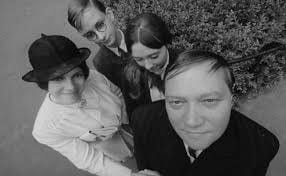
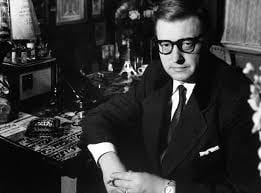
As you can possibly figure out, this author had a though life. When he was a child, the second world war started, and once he turned a bit older, the Nazis were replaced by the Communists. The topic of the WW2 emerged in Fuks’s literary works notably in The Cremator, known also for a later movie of the same name. This novel speaks about a man who works in a crematorium and becomes unhealthily obsessed by the idea of the “pure race”. Surely, not the most optimistic topic to speak about, on the other hand, the way Fuks narrates his plots is extremely catchy and dreamlike in the same time.
